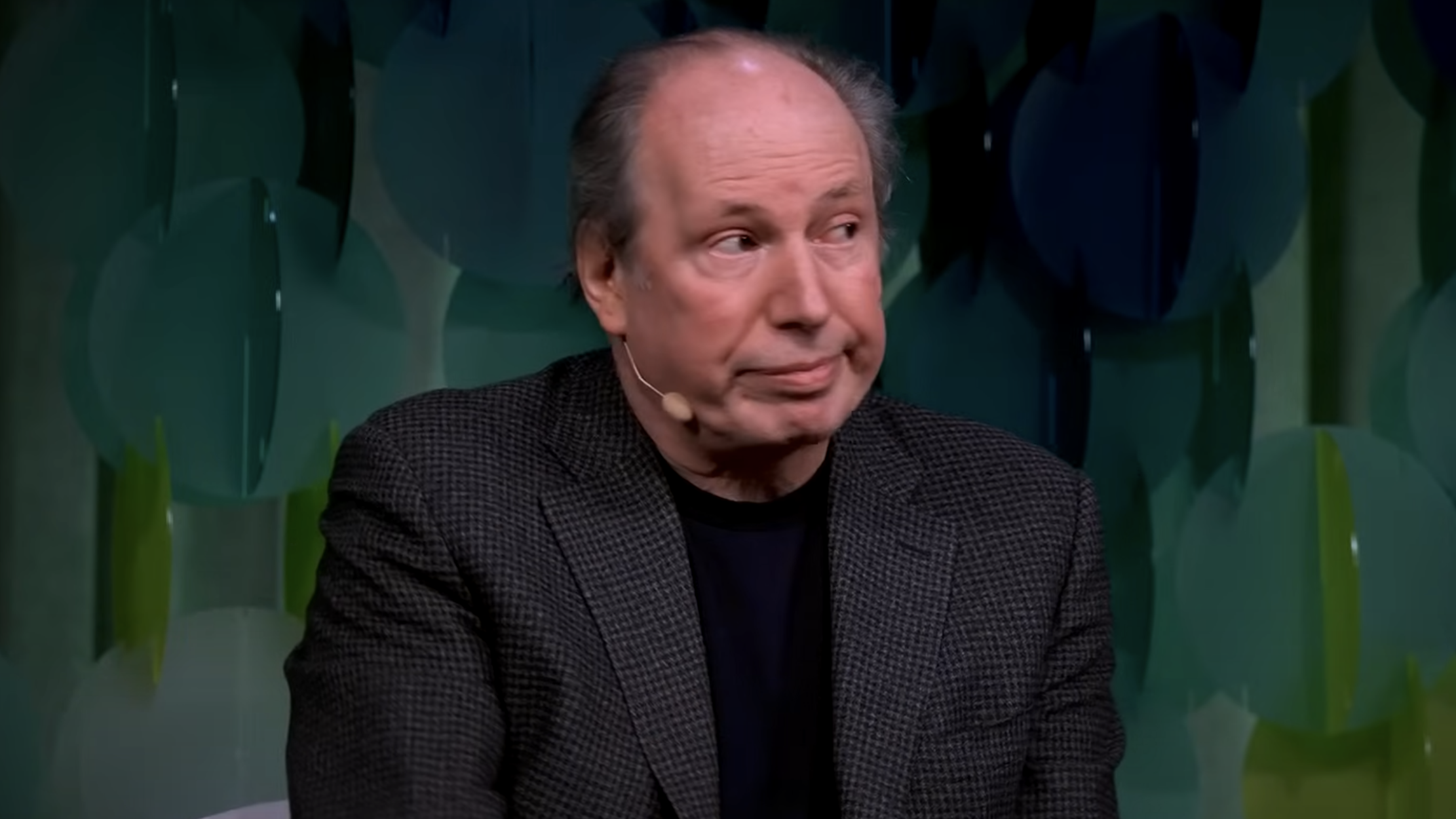Rap/R&B songwriter Elsy Wameyo: "Bass is my favourite instrument - when I open Ableton, I always run to a bassline first"
Elsy Wameyo chats to Danny Turner about the themes of self-empowerment behind her debut LP, Saint Sinner
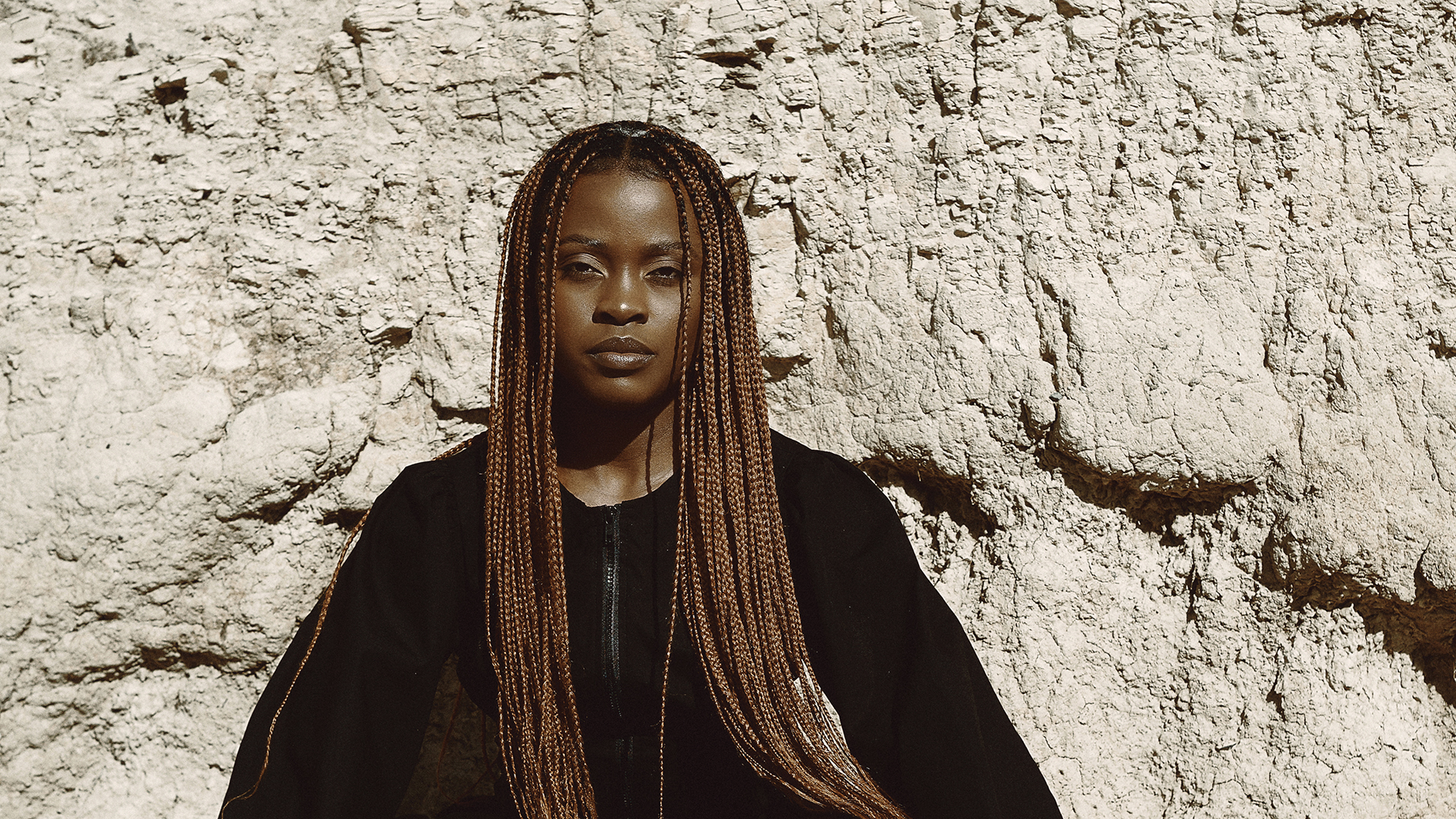
Want all the hottest music and gear news, reviews, deals, features and more, direct to your inbox? Sign up here.
You are now subscribed
Your newsletter sign-up was successful
Born in Nairobi, Kenya, Elsy Wameyo migrated to Australia as a young girl, only to struggle with racism, bullying and feelings of isolation. Even more perplexing were later attempts to reconnect with her Kenyan heritage, effectively resulting in a sense of ethnic homelessness.
Having written poems and studied various producers, an inquisitive Wameyo dipped her toe into music production during Covid, eventually releasing the hip hop/R&B, soul-infused Nilotic EP in 2022, using rap vocals as an outlet for feelings of anger and frustration.
Following multiple accolades and three tours, the expressive songwriter’s celebrity status required a further period of self-adjustment. Two years later, Wameyo’s debut LP, Saint Sinner, further explores themes of alienation and cultural adjustment via an edgy yet slick assemblage of rap, R&B and gospel music.
You migrated from Kenya to Australia when you were a child. What are your recollections of that experience?
“I was too young to remember when I initially left. I was about six or seven years old and didn’t even understand the concept of what was happening – I just got on the plane and rocked up in a different country. The hardship came once we were living in Adelaide.
“When we landed, my mum and dad remind me that I started complaining that it was too hot and my nose was burning, but there were hardships at school like racism and being bullied for what I was eating, how I looked and the struggle of wanting to fit in. I didn’t realise the struggle until I was older and out of that childlike mindset.”
I’m a very sensitive person and have never been your typical writer that thinks, let me just write a love song
When you first started writing tracks, did you find that it was very natural to navigate your lyrics towards that struggle?
Want all the hottest music and gear news, reviews, deals, features and more, direct to your inbox? Sign up here.
“I’m a very sensitive person and have never been your typical writer that thinks, let me just write a love song. Because of that, it’s very easy for me to gravitate to writing about what I’m feeling. The first song I ever wrote, Intuition, wasn’t about me; it was an ode to a friend that had passed away, which is not the typical way for a person to start their songwriting journey. I’d like to think I’m on my own unique path and I like it here. If I tried to imitate someone else, I’d just look silly anyway.”
Your 2022 EP, Nilotic, relates to your African heritage. Has it been easy to keep that connection having migrated at such a young age?
“I feel like I could have a full conversation with you about that question because my life and identity is a tug and pull between those perspectives. Moving to Australia as a young girl who is black and living in what I would call ‘white walls’ really tripped me up.
“You’d imagine that when I came back home to Kenya people would give me all the love, but because I now had an accent and dressed and eat differently, they made me feel like an outsider. When I return, I’m grounded by the environment and love the culture and people, but still struggle with that other side.
“In 2023, I was really excited to come to Kenya and hide away, thinking it would be an opportunity to sit with family and cousins who I never got to spend time with, but after a month I was crying because we would have conversations and I was always made to feel like an outsider. But everything that’s been happening in Kenya right now has united us in a different way. No matter what anyone says to me, at the end of the day I know that my blood is from here and nowhere else.”
Was rap music attractive to you because it enabled you to use vocals and lyrics in a way that gave maximum expressivity?
“When I started rapping on the Nilotic EP, a good percentage of it came from my subconscious. I grew up listening to Lil Wayne and enjoyed Nicki Minaj because of her character and how she had all these different personas, but I also did a lot of research and read an article about the Nilotes and how the language of that tribe is a bit of a tongue twister.
“The intricacy of the language might explain why there are a lot of rappers in Kenya and why this tribe can rap so fast and so perfectly. I hadn’t even started rapping at that point, but I thought, cool, that’s my stamp of approval – I can do this!”
And, presumably, rap allows you to hit home with the message?
“When I started music, I was always the girl who could sing and people would always get me to come and do their vocals, but I noticed that people weren’t hearing me. When I released Intuition, people thought it was a cool song, which is lovely, but part of me wanted them to understand what I was actually saying. That’s when I realised that rap would cut through because there’s no melody keeping the listener there. I knew that the anger expressed on Nilotic was only going to be received well through rap.”
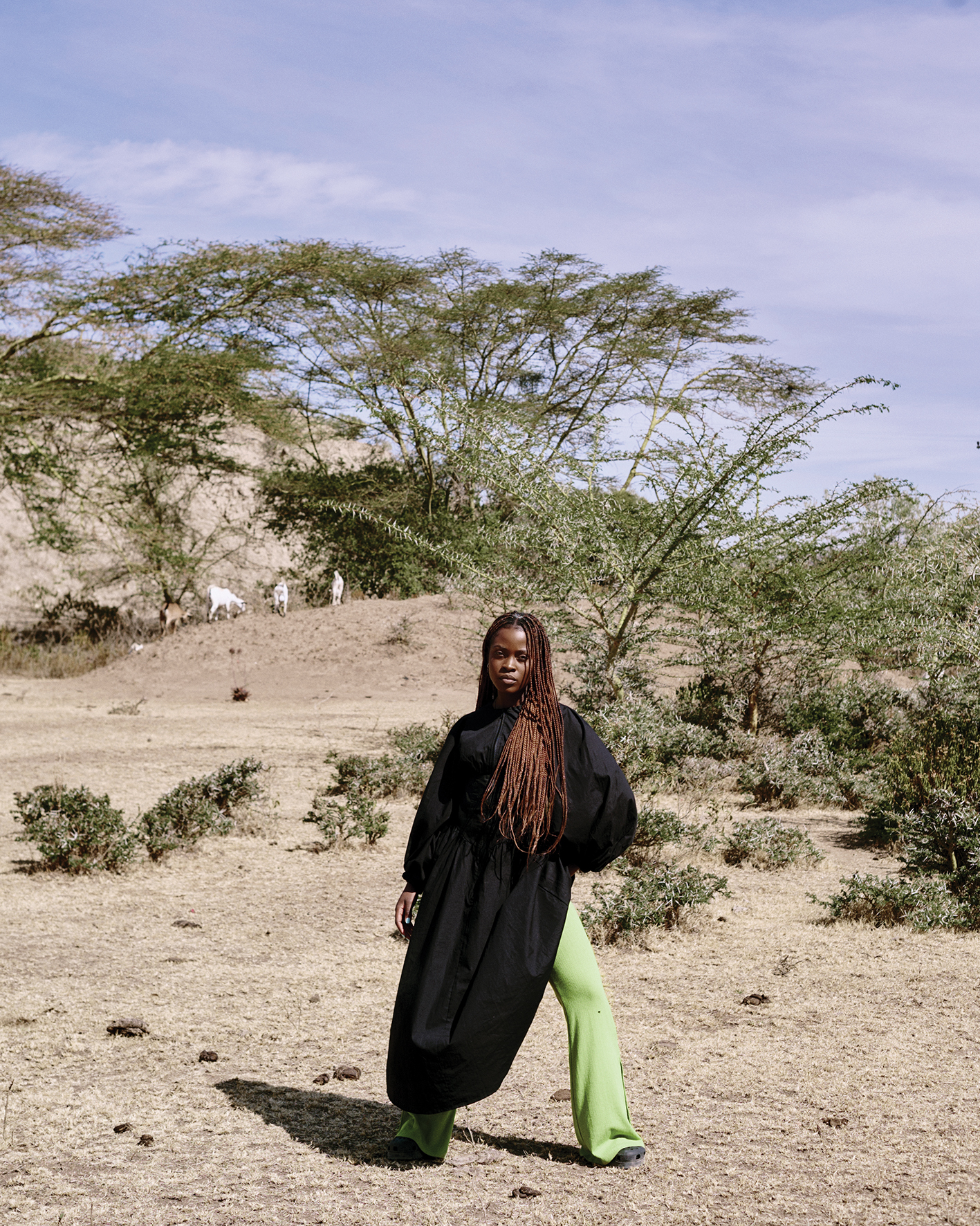
When did you first begin to express an interest in music production itself?
“I feel like the Nilotic EP was the first to show people the real Elsy Wameyo. When I started making music, I was working alongside a producer and it was cool to just sit back and watch, but I didn’t like not knowing things.
“Being in a room and trying to execute an EP with someone who doesn’t even know where you come from or understand the language you speak created the producer in me. The cherry on top was Covid because I had nothing else to do and so lockdown allowed me to start experimenting with production. I received a grant from a body in Australia that funds artists and that allowed me to get a little studio setup at home.
“My eyes had seen how things worked, which allowed me to have a bit of production background and Nilotic allowed me to experiment and translate exactly what I heard in my head. I can’t lie – I am a control freak [laughs].”
You’ve mentioned Black Panther composer Ludwig Göransson having quite a major influence on you…
“It’s much deeper than just the soundtrack to that music. When I was making Nilotic, Black Panther was definitely a very big influence and being someone who loves to research, I watched every interview that Ludwig had done and was so intrigued by his process because he basically came to Africa and sampled people playing instruments in remote villages.
“I’d always been taught this notion that music had to come from some really high-end sound design perspective, but Ludwig opened my eyes to there being music in everything and that there was a way to create that can come from anything.”
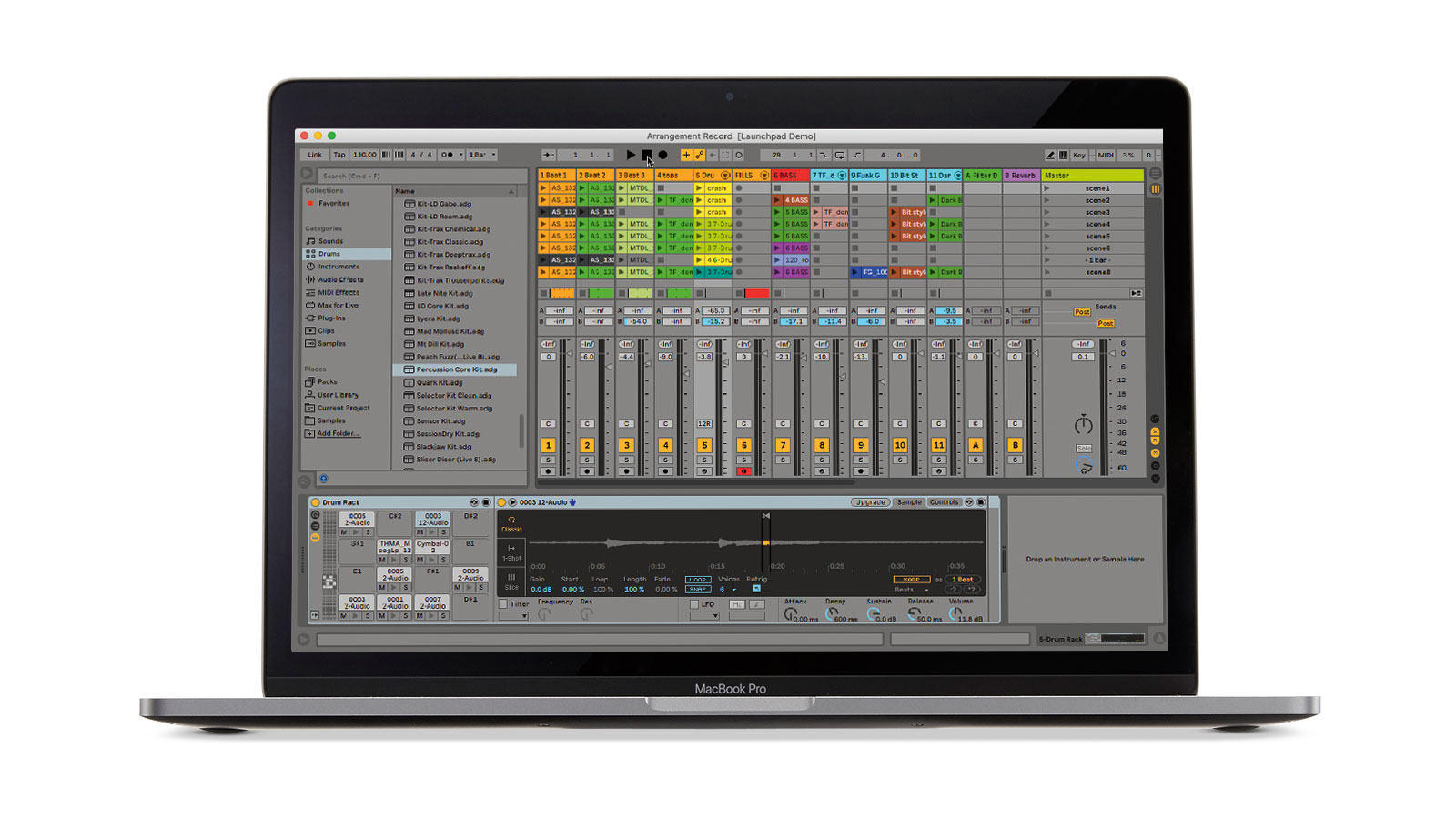
We’re guessing that Ableton was your choice of DAW?
“Yes, very good [laughs]. I started on Ableton and have never gone anywhere else, but I really, really want to learn Logic. Every time I walk into a room and tell people I use Ableton, most of the time they look at me and say, why do you use Ableton, it’s so complicated?
“Now it’s almost become like a language barrier, so I want to learn Logic and know my way round it. It’s just Elsy being Elsy and wanting to know how to do everything myself, but technology is a bit like giving a child a stick. In our mind, the stick can be anything and our skill allows us to create from anything.”
In what sense did the success of Nilotic leave you a little disillusioned with the music industry?
“There’s this weird grey area where you’re living a double life within the same being. I had a very celebrity lifestyle, but when I came home I was just a regular person who puts their clothes in the washing machine, does the dishes and cooks for mum. My first Nilotic tour was accompanied by three shows, which, as a young child that had never toured before, felt quite gruesome. I was prepared for the physical side, but not how draining it would be spiritually.
“Once Nilotic had become a thing, everything became very plastic. Magazines like Wonderland and Vogue were coming to my door and I was treated differently – you become a mannequin, unfortunately. Being quite a humble person, it’s very scary when the world tries to turn you into something else and people aren’t just listening to your words and calling it a day. That grey area really tripped me up because, although it’s great that people enjoy the fruits of my labour, I’m just trying to fix myself.”
What lies behind the album title Saint Sinner – two words that are clearly in contradiction?
“Saint Sinner is about the duality that exists in every aspect of my life – you’ve got Tish, which is what my family call me, and Elsy Wameyo. I guess the saint is yearning to be a reflection of what God is and the sinner is the one who is put on top of the stage in front of 5,000 people praising her. There’s no defining line between the two - they both have to bleed to work and so I’m really just coming to terms with both sides.”
My body was yearning to say something but my mind kept telling me not to, maybe in the name of safety or wanting people to love my music and just leave it at that
How was that reflected in the songwriting on the album?
“The track Repercussions was one of the first things I wrote before Saint Sinner was even a thing. It was the first time I’d left Australia and I was thinking to myself, I’m over you people, leave me alone. I felt so broken, went to a studio in London and started writing poems in my own language – and if you knew me, you’d understand how deep that is.
“My body was yearning to say something but my mind kept telling me not to, maybe in the name of safety or wanting people to love my music and just leave it at that. Repercussions was the first song where I reached that threshold of saying what I really wanted to say even if people didn’t like it, so it’s quite dear to me.”
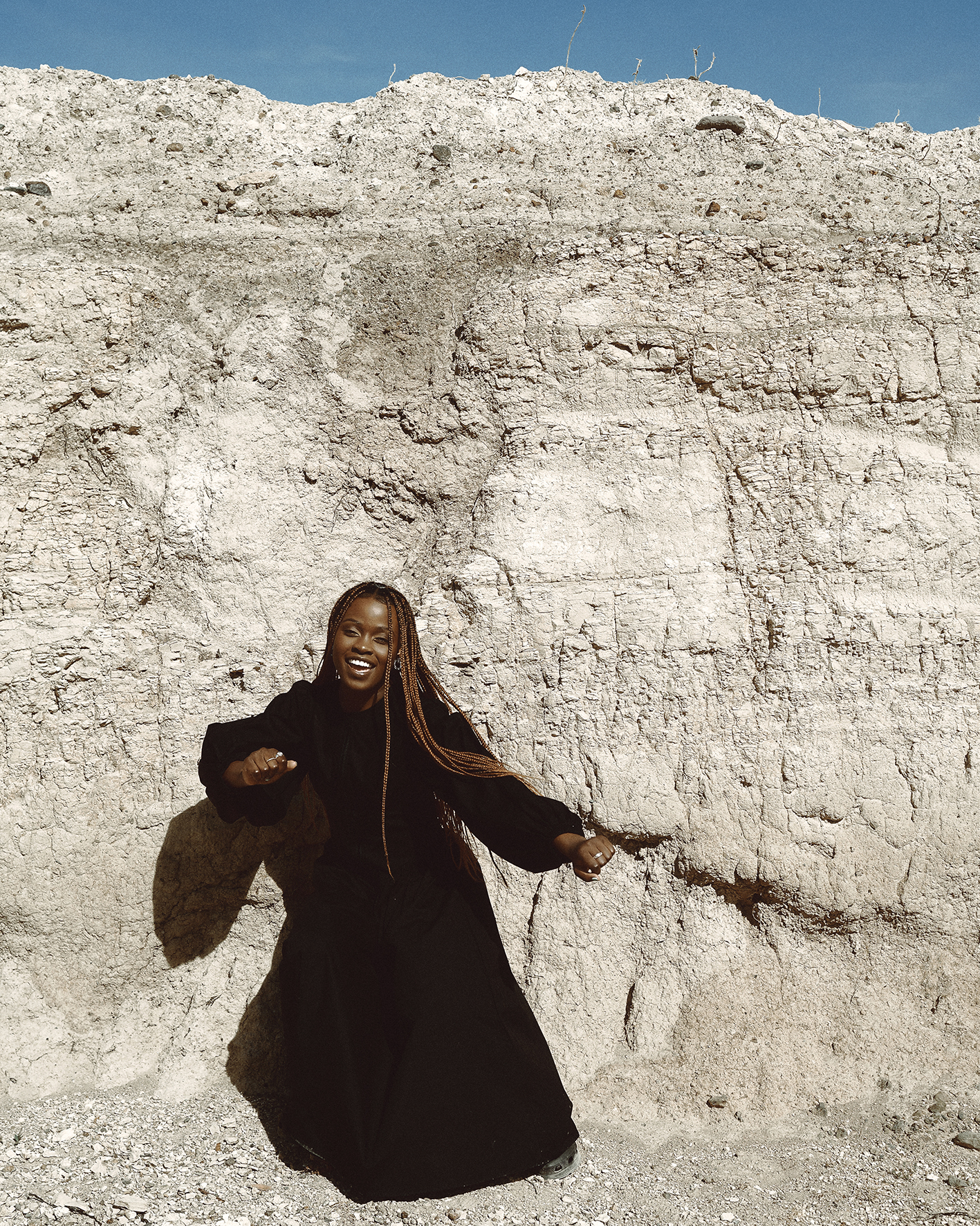
Is the songwriting process different every time?
“Before I get into the studio and put pen to paper, I try to tap into what I’m feeling or going through – who I’m mad at or what I want to cry about. When it comes to translating that, I create quote pages and journals with lots of notes kept on my phone or laptop. I wish you could see my phone because there are absolutely piles of notes, images, links and videos that I can draw from and I love putting words together. When it comes to the song, I’ll have a compositional poem written that sits beneath everything.”
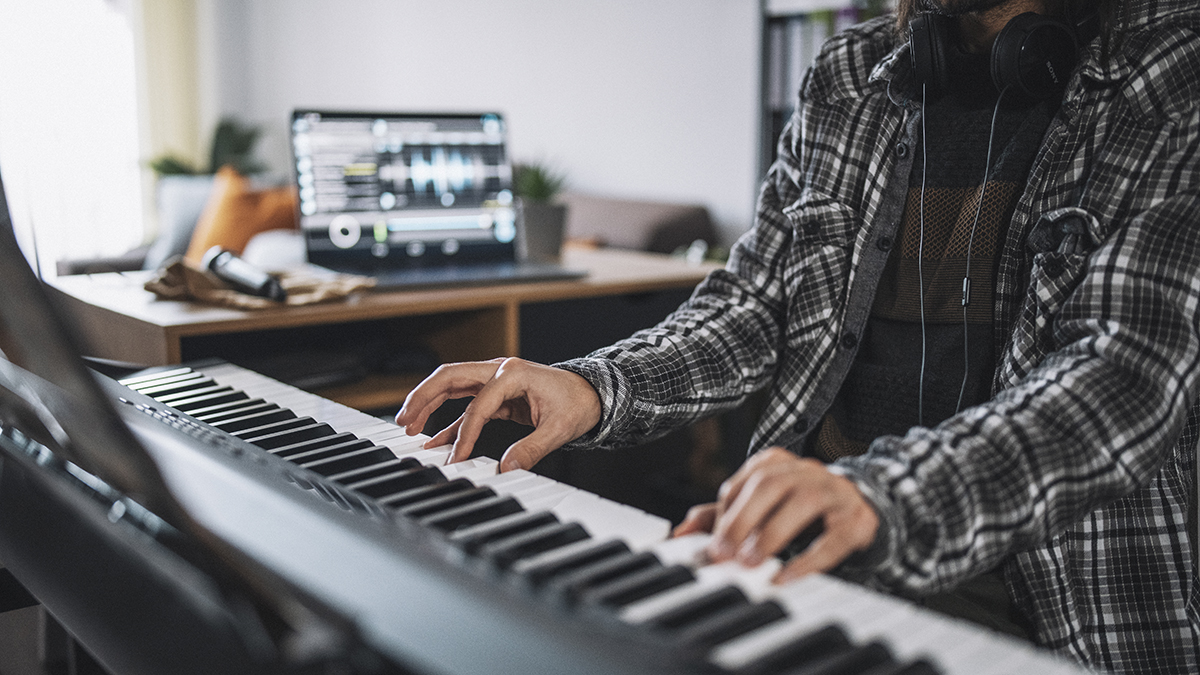
Songwriting basics: chord, melody and music theory tricks for DAW users
Do you have an example of how that turns into a song?
“If we take the track Conquer, my notes show the title and say ,‘I know who I belong to’. I made sure that was visible to me at all times to re-iterate and remind myself of the reason I’m writing the song because it’s very easy to just use words for the sake of it or because they rhyme or sound cool. When it comes to the music, I’m driven by melody but bass is my favourite instrument. When I open Ableton, I always run to a bassline first before looking for a good drum line that makes me feel how the story feels.”
A lot of tracks feature various ethnic vocal chanting. Where are these sourced from?
“My intention was to come to Kenya and get some field recordings, but because of Covid I wasn’t able to so I messaged friends and asked if they could connect me with people back home who could take their phone outside and record some cows or something [laughs].
“I also found a lot of clips on YouTube – there was a Maasai song that got a lot of traction and a guy on Instagram who put beats behind it. That was the first time I saw someone doing that with African sounds, so I went on YouTube and started commenting on videos I loved and seeing if I could pay people to use their stuff. That’s where I got some of the samples from, alongside family members.”
Soundtrack music is not like your regular Spotify track; the soundscaping and design is so intense and a world of its own
We mentioned Ludwig Göransson earlier. Is his soundtrack influence displayed in your use of orchestral sounds on tracks like Wonder Horns?
“1,000%. Soundtrack music is not like your regular Spotify track; the soundscaping and design is so intense and a world of its own. When I was making beats, I’d always use my brother as my guinea pig to listen to everything and he’d immediately start envisioning things… ‘I’m running or there’s a car etc,’ and I loved that he was building a story from those sounds.
“Creating that world comes from people like Ludwig Göransson and Hans Zimmer. I didn’t watch the movie Dune, but I watched a Hans Zimmer documentary of him creating the soundtrack and his thought processes and reasons for using specific instruments and musicians was wild. For example, he’ll use an eerie buzzing noise that sounds really minor until you tune into it, and that’s how they get you.”
Do all of your sound sources come from within Ableton?
“I worked with two producers on the album, Wuod Omollo and Polycarp Otieno. Me being me, I gave them documents explaining who Elsy is and the whole context of Saint Sinner alongside messages saying Elsy loves trumpets and brass sounds because they’re related to royalty and dominion.
“Alongside my producers, I want to translate those sounds within the music, but as I was saying before, Wuod and Polycarp both use Logic so a lot of sounds were coming from their plugins. We didn’t use any live instruments, except for guitar. Thank You is a stunning gospel track, with great keys.”
Do you feel this truly displays your evolution as a songwriter?
“Because Wuod played the keys, I can’t honestly say that I made the whole thing. What I did learn throughout the whole production of the album, however, is that I was experimenting with sounds that I’d never previously played with. The track Repercussions also has beautiful keys before dropping into the depths of darkness, but I think Thank You definitely unlocked something that was hiding.
“I’ve always struggled to write from the perspective of Saint Elsy – a Christian gospel singer that loves to worship, but making the track felt like a conversation with God that gave me the confidence to do that. I’m very excited to continue experimenting and create gospel songs that are not common to the music world I live in.”
Elsy Wameyo's Saint Sinner is out now on AWAL.


